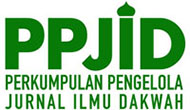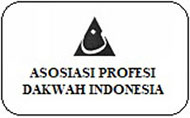POLITIK SELEBRITI: PERLAWANAN TERHADAP SISTEM (STUDI KASUS GAYA KOMUNIKASI POLITIK PADA KANDIDAT PRESIDEN UKRAINA VOLODYMYR ZELENSKY)
Abstract
This study aims to examine in depth about celebrity politics as part of political communication by Ukrainian presidential candidate Volodymyr Zelenskiy who won the election in 2019 in two rounds. The paradigm of this research is critical constructivist with the case study research method based on Zelensky's speeches and political statements in the mass media. The results of the analysis and discussion showed that Zelensky's popular celebrity status was Zelensky's main selling power and strengthened his position, used a political communication style approach that opposed mass media hegemony, maximized the role of social media, did not attend talk shows, and did not attend public debates. It shows the offer of an approach that actually challenges the system neatly and constructively, but destructively. However, the various policy programs offered by Zelensky actually did not dare to fight the mainstream, they still followed the flow, such as supporting EU and NATO membership, fighting Russia, and strengthening the Ukrainian economy. A popular policy that is different from Zelensky is its efforts to legalize marijuana, prostitution and gambling in certain cities.
Keywords
Full Text:
PDFReferences
Becker, A. B. (2013). Star power? Advocacy, receptivity, and viewpoints on celebrity involvement in issue politics. Atlantic journal of communication, 21(1), 1-16. DOI: 10.1080/15456870.2013.743310
Biccum, A. (2011). Marketing development: celebrity politics and the ‘new’development advocacy. Third world quarterly, 32(7), 1331-1346. DOI: 10.1080/01436597.2011.600107
Büscher, B. (2010). Anti‐politics as political strategy: Neoliberalism and transfrontier conservation in southern Africa. Development and change, 41(1), 29-51. DOI: 10.1111/j.1467-7660.2009.01621.x
Cardo, V. (2014). Celebrity politics and political representation: The case of George Galloway MP on Celebrity Big Brother. British Politics, 9(2), 146-160. DOI: doi.org/10.1057/bp.2013.22
Dahlgren, P. ( 1995). Television and the public sphere. London: Sage.
Davis, D.K. ( 1995). Mass and modernity: The future of journalism in a post Cold War and postmodern world. In P.C. Wasburn (ed), Research in political sociology, Volume 7: Mass media and politics. Greenwich, CT: JAI Press.
David, C. C., & Atun, J. M. L. (2015). Celebrity Politics: Correlates of Voting for Celebrities in Philippine Presidential Elections. Social Science Diliman, Vol. 11 Issue 2, p1-23.
Drake, P., & Miah, A. (2010). The cultural politics of celebrity. Cultural Politics, 6(1), 49-64. DOI: 10.2752/175174310X12549254318746.
Eyal, G. (2000). Anti-politics and the spirit of capitalism: Dissidents, monetarists, and the Czech transition to capitalism. Theory and Society, 29(1), 49-92. DOI: 10.1023/A:1007086330378
Felgenhauer, T. (1999). Ukraine, Russia, and the Black Sea Fleet Accords. Princeton University.
Fieschi, C., & Heywood, P. (2004). Trust, cynicism and populist anti‐politics. Journal of Political Ideologies, 9(3), 289-309. DOI: doi.org/10.1080/1356931042000263537
Fiorina, M. (1980). The decline of collective responsibility. Daedalus 109: 25– 74.
Gerring, John. (2006). Case Study Research: Principle and Practices. Cambridge: Cambridge University Press.
Hancock, Dawsown R. (2006). Doing Case Study Research: A Practical Guide for Beginning Researchers. London: Teachers College Columbia University.
Hickey, S. (2009). The politics of protecting the poorest: Moving beyond the ‘anti-politics machine’?. Political Geography, 28(8), 473-483. DOI: 10.1016/j.polgeo.2009.11.003
Hughes-Freeland, F. (2007). Charisma and celebrity in Indonesian politics. Anthropological Theory, 7(2), 177-200. DOI: 10.1177/1463499607077297
Kurzman, C., Anderson, C., Key, C., Lee, Y. O., Moloney, M., Silver, A., & Van Ryn, M. W. (2007). Celebrity status. Sociological theory, 25(4), 347-367. DOI: 10.1111/j.1467-9558.2007.00313.x
Thrall, A. T., Lollio-Fakhreddine, J., Berent, J., Donnelly, L., Herrin, W., Paquette, Z., ... & Wyatt, A. (2008). Star power: Celebrity advocacy and the evolution of the public sphere. The international journal of press/politics, 13(4), 362-385. DOI: 10.1177/1940161208319098
Lalancette, M., & Raynauld, V. (2017). The power of political image: Justin Trudeau, Instagram, and celebrity politics. American Behavioral Scientist, DOI: 0002764217744838.
Larrabee, F. S. (2010). Russia, Ukraine, and Central Europe: the return of geopolitics. Journal of international affairs, 63(2), 33-52.
Loader, B. D., Vromen, A., & Xenos, M. A. (2016). Performing for the young networked citizen? Celebrity politics, social networking and the political engagement of young people. Media, culture & society, 38(3), 400-419. DOI: 10.1177/0163443715608261
Maarek, P.J. ( 1995). Political marketing and communication. London: John Libby.
Marsh, D., Hart, P. T., & Tindall, K. (2010). Celebrity politics: The politics of the late modernity?. Political studies review, 8(3), 322-340. DOI: 10.1111/j.1478-9302.2010.00215.x
McKernan, B. (2011). Politics and celebrity: a sociological understanding. Sociology Compass, 5(3), 190-202.10.1111/j.1751-9020.2011.00359.x
Mukherjee, J. (2004). Celebrity, media and politics: An Indian perspective. Parliamentary Affairs, 57(1), 80-92. DOI: 10.1093/pa/gsh007
Muir, K., 2005. Media Darlings and Falling Stars: Celebrity and the Reporting of Political Leaders. Westminster Papers in Communication and Culture, 2(2), pp.54–71. DOI: 10.16997/wpcc.24
Patterson, T.E. ( 1980). The mass media election: How Americans chose their president. New York: Praeger.
Pfetsch, B. (1996). Convergence through privatization? Changing media environments and televised politics in Germany. European Journal of Communication 8( 3): 425– 450.
Postman, N. (1985). Amusing ourselves to death: Public discourse in the age of show business. New York: Viking‐Penguin Books.
Ribke, N. (2015). Entertainment politics: Brazilian celebrities’ transition to politics, recent history and main patterns. Media, Culture & Society, 37(1), 35-49. 10.1177/0163443714549087
Schultz, D. (2001). Celebrity politics in a postmodern era: The case of Jesse Ventura. Public Integrity, 3(4), 363-376. DOI: 10.1080/15580989.2001.11770886
Seizov, Ognyan. (2014). Political Communication Online: Structures, Functions, and Challenges. London: Routledge.
Solchanyk, R. (1996). Ukraine, Russia, and the CIS. Harvard Ukrainian Studies, 20, 19-43.
Street, J. (2012). Do celebrity politics and celebrity politicians matter?. The British journal of politics and international relations, 14(3), 346-356. DOI: 10.1111/j.1467-856X.2011.00480.x
Street, J. (2004). Celebrity politicians: popular culture and political representation. The British journal of politics and international relations, 6(4), 435-452. DOI: 10.1111/j.1467-856X.2004.00149.x
Van Zoonen, L. (2006). The personal, the political and the popular: A woman’s guide to celebrity politics. European journal of cultural studies, 9(3), 287-301. DOI: 10.1177/1367549406066074
Wattenberg, M. (1984). The decline of American political parties, 1952–1980. Cambridge, MA: Harvard University Press.
West, D. M. (2005). American politics in the age of celebrity. The Hedgehog Review, 7(1), 59-66.
Wheeler, M. (2012). The democratic worth of celebrity politics in an era of late modernity. The British Journal of Politics and International Relations, 14(3), 407-422.
Wood, M., Corbett, J., & Flinders, M. (2016). Just like us: Everyday celebrity politicians and the pursuit of popularity in an age of anti-politics. The British Journal of Politics and International Relations, 18(3), 581-598. DOI: 10.1177/1369148116632182
Yin, Robert K. (2002). Case Study Research: Design and Methods. London: Sage Publications.
Berita dan internet
Dejevsky, Mary. (2019, 2019, 18 April). Why a new era of anti-politics will probably help a TV comedian win Ukraine’s presidential election. https://www.independent.co.uk/voices/ukraine-election-president-volodymyr-zelensky-petro-poroshenko-a8875951.html. Diakses pada 5 Mei 2019.
Kao, Anthony. (2017, 6 Juni). Ukraine’s “Servant of the People” Is a Hidden Gem of Political Comedy. https://www.cinemaescapist.com/2017/06/ukraines-servant-people-hidden-gem-political-comedy/. Diakses pada 3 Mei 2019.
Kao, Anthony (2017, 22 Agustus). Interview: Vladimir Zelenskiy on Playing Ukraine’s President in “Servant of the People”. https://www.cinemaescapist.com/2017/08/interview-vladimir-zelenskiy-playing-ukraines-president-servant-people/. Diakses pada 3 Mei 2019.
Volnsky, Oleksandr. (2018, 17 April). Presidential elections in Ukraine - the show will end, but what will happen to the country?. https://www.ukrinform.net/rubric-elections/2683041-presidential-elections-in-ukraine-the-show-will-end-but-what-will-happen-to-the-country.html. Diakses pada 3 Mei 2019.
Ukraine election: Poroshenko debates empty podium as Zelensky stays away. (2019, 14 April). BBC.com. https://www.bbc.com/news/world-europe-47925330. Diakses pada 2 Mei 2019.
Ukraine’s Election Is an All-Out Disinformation Battle. (2019, 17 April). The Atlantic. https://www.theatlantic.com/international/archive/2019/04/russia-disinformation-ukraine-election/587179/. Diakses pada 2 Mei 2019.
Ukraine media demands access to runoff frontrunner Zelensky. (2019, 17 April). Al Jazeera. https://www.aljazeera.com/news/2019/04/ukraine-media-demands-access-frontrunner-volodymyr-zelensky-190416154745843.html. Diakses pada 3 Mei 2019.
Team Zelenskiy: behind the scenes in Ukraine election win. (2019, 22 April). https://www.reuters.com/article/us-ukraine-election-team/team-zelenskiy-behind-the-scenes-in-ukraine-election-win-idUSKCN1RY0XF. Diakses pada 2 Mei 2019).
Vladimir Zelenskiy. (2019). Tersedia dari: http://kvartal95.com/en/actors/vladimir/
Zelenskiy reveals plans to end war with Russia, fight corruption. (2019, 8 April). https://www.kyivpost.com/ukraine-politics/zelenskiy-reveals-plans-to-end-war-with-russia-fight-corruption.html. Diakses pada 5 Mei 2019.
Zelensky promises to maintain Ukraine’s course toward NATO and EU and protect foreign investments.. (2019, April 8). Uawire. https://uawire.org/zelensky-promises-to-maintain-ukraine-s-course-toward-nato-and-eu-and-protect-foreign-investments#. Diakses pada 5 Mei 2019.
Zelensky says Ukraine and Russia share only state border, have nothing else in common. (2019, 2 Mei). http://tass.com/world/1056799. Diakses pada 5 Mei 2019.
Zelensky faces first challenges ahead of presidential inauguration. (2019, 26 April). http://www.ukrweekly.com/uwwp/zelensky-faces-first-challenges-ahead-of-presidential-inauguration/. Diakses 5 Mei 2019).
Zelensky supports legalization of prostitution, marijuana in Ukraine: Ukraine could have own Las Vegas. (2019, 18 April). https://www.unian.info/politics/10521186-zelensky-supports-legalization-of-prostitution-marijuana-in-ukraine-ukraine-could-have-own-las-vegas.html. Diakses pada 5 Mei 2019.
DOI: http://dx.doi.org/10.24014/jdr.v30i1.7059
Refbacks
- There are currently no refbacks.

This work is licensed under a Creative Commons Attribution-ShareAlike 4.0 International License.
Editorial Office:
2nd Floor, Building of Faculty of Da'wah and Communication, Universitas Islam Negeri Sultan Syarif Kasim Riau. Jl. HR Soebrantas Km 15, Simpangbaru, Tampan, Pekanbaru
Email : jurnalrisalah@uin-suska.ac.id

This work is licensed under a Creative Commons Attribution-ShareAlike 4.0 International License.














